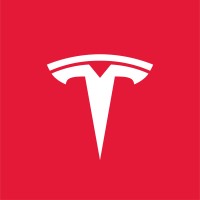FAQs
What is the duration of the internship?
The internship is expected to start around May 2025 and continue through the Summer term (approximately August 2025), with the possibility of extending into Fall 2025 if available. A minimum commitment of 12 weeks full-time and on-site is required.
Is this internship open to international students?
Yes, international students can apply, but they must consult their school regarding the ability to work 40 hours per week on-site if their work authorization is through CPT.
What are the required qualifications for this internship?
Candidates should be currently pursuing a Degree in Electrical Engineering, Software Engineering, Computer Science/Engineering, or a related field, and should have strong programming skills in Matlab or Python.
What skills are necessary for this role?
Necessary skills include strong mathematical skills in probability, advanced linear algebra, and calculus, familiarity with machine learning and robotics algorithms, experience in embedded C/C++ programming, and good data analysis and visualization skills.
Will I receive benefits during my internship?
Yes, as a full-time Tesla Intern, you will be eligible for benefits such as medical plans, dental and vision coverage, 401(k) plans, and other financial benefits.
What is the expected compensation for this internship?
Compensation for this internship ranges from $20.00 to $50.00 per hour, plus benefits. Pay may vary depending on factors such as market location and job-related skills and experience.
Is there an opportunity for students to return for future internships after this one?
While the internship duration is generally limited to the summer term, opportunities for returning in future terms may be available based on performance and availability.
What location will the internship be held in?
The internship will be held on-site in Palo Alto, CA.
What types of projects will I work on during the internship?
Interns will work on developing software implementations for applications such as self-driving cars, in-vehicle sensors, and audio signal processing, as well as testing prototype firmware and solving complex problems.
Are there any specific communication protocols that I should be familiar with?
Familiarity with Ethernet or CAN communication protocols is preferred for this position.

